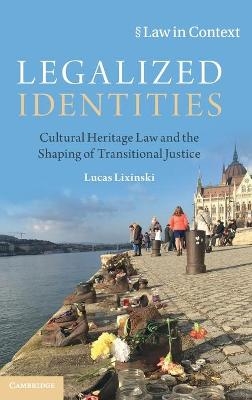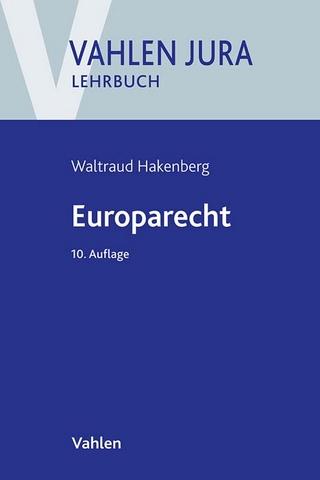
Legalized Identities
Cultural Heritage Law and the Shaping of Transitional Justice
Seiten
2021
Cambridge University Press (Verlag)
978-1-108-48815-0 (ISBN)
Cambridge University Press (Verlag)
978-1-108-48815-0 (ISBN)
This book pushes the boundaries of transitional justice and cultural heritage law, relying on insights from across all continents, and on multiple disciplines. Its original insights are of great use in the fields of law, heritage studies, transitional justice, international relations, human rights, history, and memory studies.
Cultural heritage is a feature of transitioning societies, from museums commemorating the end of a dictatorship to adding places like the Auschwitz-Birkenau concentration camp to the World Heritage List. These processes are governed by specific laws, and yet transitional justice discourses tend to ignore law's role, assuming that memory in transition emerges organically. This book debunks this assumption, showing how cultural heritage law is integral to what memory and cultural identity is possible in transition. Lixinski attempts to reengage with the original promise of transitional justice: to pragmatically advance societies towards a future where atrocities will no longer happen. The promise in the UNESCO Constitution of lasting peace through cultural understanding is possible through focusing on the intersection of cultural heritage law and transitional justice, as Lixinski shows in this ground-breaking book.
Cultural heritage is a feature of transitioning societies, from museums commemorating the end of a dictatorship to adding places like the Auschwitz-Birkenau concentration camp to the World Heritage List. These processes are governed by specific laws, and yet transitional justice discourses tend to ignore law's role, assuming that memory in transition emerges organically. This book debunks this assumption, showing how cultural heritage law is integral to what memory and cultural identity is possible in transition. Lixinski attempts to reengage with the original promise of transitional justice: to pragmatically advance societies towards a future where atrocities will no longer happen. The promise in the UNESCO Constitution of lasting peace through cultural understanding is possible through focusing on the intersection of cultural heritage law and transitional justice, as Lixinski shows in this ground-breaking book.
Lucas Lixinski is Associate Professor at Faculty of Law, UNSW Sydney. He is a leading researcher in the areas of international cultural heritage law and international human rights law, having authored over 100 publications in those fields. He is Vice President of the Association of Critical Heritage Studies and Rapporteur of the International Law Association Committee on Participation in Global Cultural Heritage Governance.
1. Introduction; 2. Identity, Memory, and Transitional Justice; 3. Conservation and Reinvention: Remaking Symbols; 4. Erasing or Replacing Symbols; 5. Creating New Symbols; 6. Cultural Heritage as Pragmatism; 7. Conclusions.
| Erscheinungsdatum | 06.04.2021 |
|---|---|
| Reihe/Serie | Law in Context |
| Zusatzinfo | Worked examples or Exercises |
| Verlagsort | Cambridge |
| Sprache | englisch |
| Maße | 153 x 230 mm |
| Gewicht | 450 g |
| Themenwelt | Recht / Steuern ► EU / Internationales Recht |
| Sozialwissenschaften ► Ethnologie | |
| Sozialwissenschaften ► Soziologie | |
| ISBN-10 | 1-108-48815-3 / 1108488153 |
| ISBN-13 | 978-1-108-48815-0 / 9781108488150 |
| Zustand | Neuware |
| Informationen gemäß Produktsicherheitsverordnung (GPSR) | |
| Haben Sie eine Frage zum Produkt? |
Mehr entdecken
aus dem Bereich
aus dem Bereich
Vertrag über die Europäische Union, Vertrag über die Arbeitsweise der …
Buch | Softcover (2024)
dtv Verlagsgesellschaft
CHF 22,25


